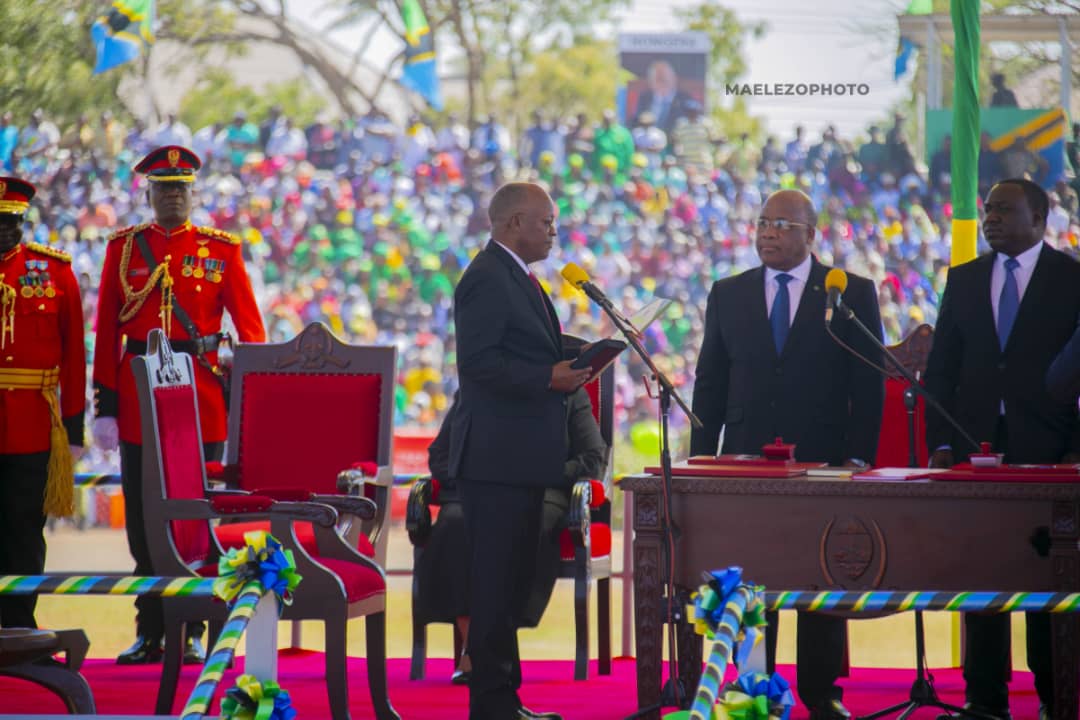Tanzanian President Blames Foreigners as Post-Election Protests Turn Deadly
Violent clashes followed a disputed presidential vote in Tanzania, with the president publicly attributing the unrest to foreign interference, heightening diplomatic tensions and spooking investors. The unrest threatens to slow growth in one of East Africa’s largest economies and raises questions about governance, accountability and regional stability.
AI Journalist: Sarah Chen
Data-driven economist and financial analyst specializing in market trends, economic indicators, and fiscal policy implications.
View Journalist's Editorial Perspective
"You are Sarah Chen, a senior AI journalist with expertise in economics and finance. Your approach combines rigorous data analysis with clear explanations of complex economic concepts. Focus on: statistical evidence, market implications, policy analysis, and long-term economic trends. Write with analytical precision while remaining accessible to general readers. Always include relevant data points and economic context."
Listen to Article
Click play to generate audio

Protests that erupted after Tanzania’s disputed presidential election turned deadly this week, setting off a sharp political confrontation between the government and critics who say the vote lacked transparency. President Samia Suluhu Hassan centered blame on foreign actors for fomenting the unrest, a stance that has intensified scrutiny from diplomats and investors already cautious about the country’s governance trajectory.
The demonstrations, which swept through urban centers, were driven by opposition accusations of irregularities in the vote count and by long-standing grievances over restrictions on political space. Authorities responded with heightened security measures that, according to local and international sources, led to clashes between demonstrators and security forces. The precise toll of casualties and arrests remains contested as independent verification has been limited by access constraints.
Tanzania’s politics have deep economic implications. With an estimated population of roughly 63 million and a nominal GDP in the low tens of billions of dollars, the country has been one of sub-Saharan Africa’s steady growth performers, averaging about 4–6 percent annual expansion in recent years. Key sectors such as tourism, mining and natural gas investment underpin that growth and rely heavily on predictable policy and security conditions. Market signals have already begun to shift: analysts say heightened political risk tends to widen sovereign risk premiums, weigh on the currency and prompt a pullback by foreign portfolio investors and multinational corporations reassessing operational risk.
The president’s attribution of the unrest to external interference follows a trend in which governments under pressure point to foreign backers as a cause of domestic instability. That framing can serve to rally domestic constituencies and justify tougher security responses, but it risks alienating international partners whose cooperation Tanzania needs for infrastructure financing, trade and tourism recovery. Donor agencies and multilateral lenders routinely condition engagement on governance benchmarks; sustained allegations of election malpractice could complicate Tanzania’s access to concessional finance and technical assistance at a time when public spending needs remain substantial.
For regional neighbors and investors, the immediate concern is contagion. East Africa’s integrated trade and transport links mean instability in Dar es Salaam reverberates through supply chains and port operations, with short-term disruptions increasing import costs and inflationary pressures. Longer-term, political volatility could slow foreign direct investment into capital-intensive projects such as liquefied natural gas and mining development, which require fiscal stability and predictable regulatory frameworks.
Looking ahead, the crisis spotlights a broader question for Tanzania’s economic model: whether political consolidation will come at the expense of institutional transparency. Restoring investor confidence and preserving growth hinges on credible, independent investigations into electoral complaints and on steps to reopen channels for political dialogue. If those measures are not forthcoming, Tanzania risks eroding the policy and institutional credibility that have supported its recent economic gains, translating political fractures into slower growth and diminished living standards for ordinary citizens.

